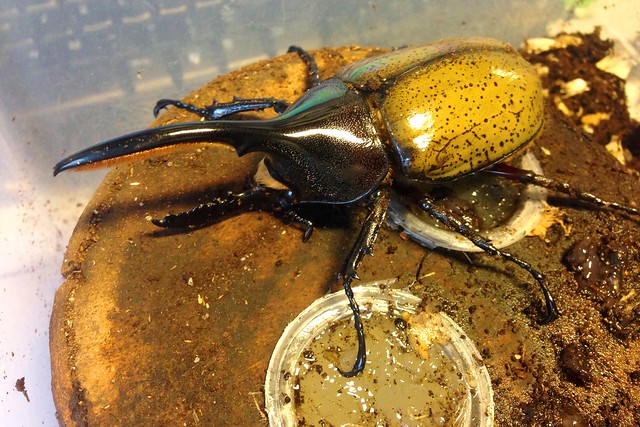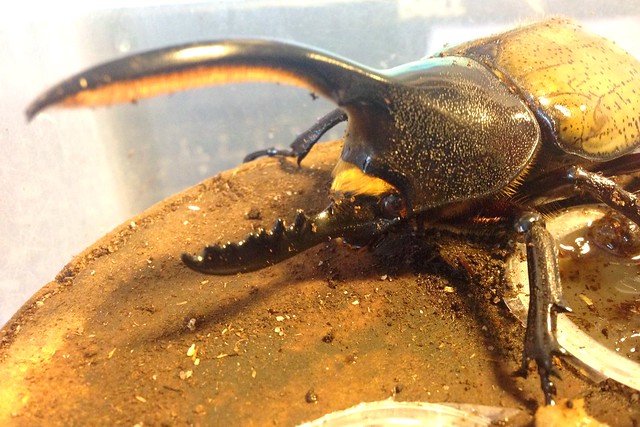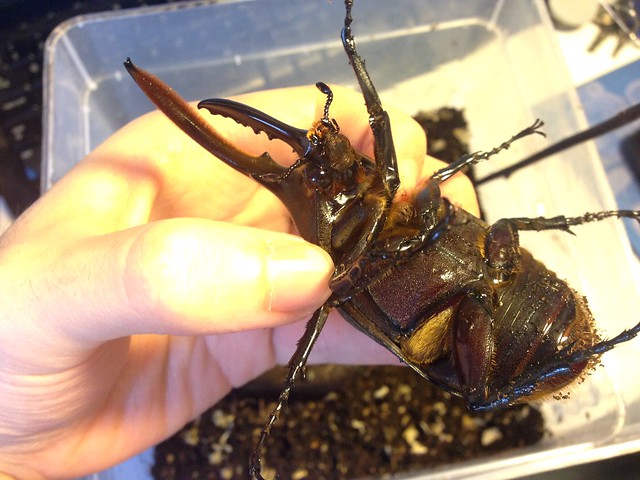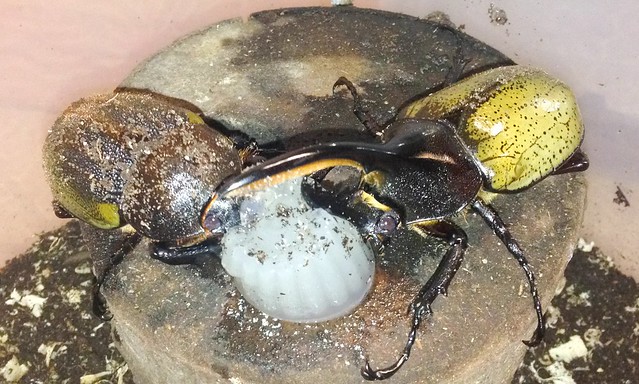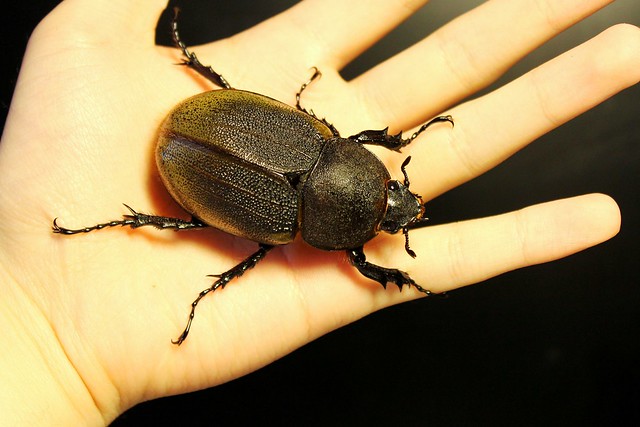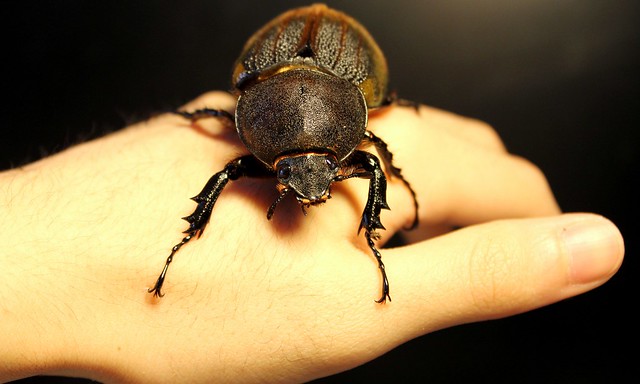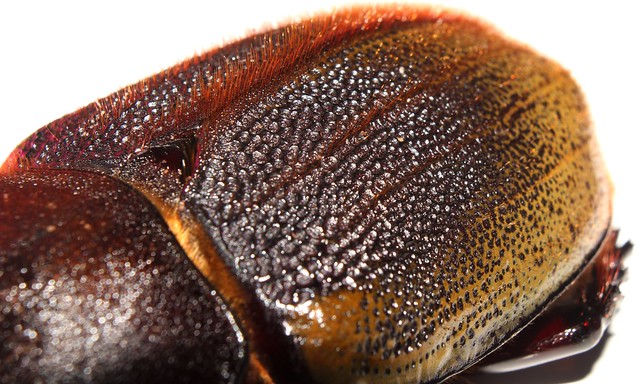Okay, I see, now. I misunderstood. Yup, hibernating.
That's actually a good thing. It means they'll live longer than if they didn't get a chance to hibernate.
In a couple of months, they'll be chowing down so much beetle jelly, you'll probably be wishing they were still hibernating! LOL
I'm rather envious of you, right now. I've always wanted a breeding pair of D.h.h beetles!
Congrats on your acquisition. They are a splendid looking pair.
Good luck with them and keep us posted.
Cheers
Cheers mate.
Actually, it doesn't mean that they will live longer as the period of
inactivity is a crucial stage of any large Cetonid or Dynastid and they will go through it, no matter what. Therefore, it's pretty much impossible for them to 'live longer' than one that doesn't go through it... as they will be
inactive after eclosing anyway! It's not a choice they can make so they will just not move or feed, no matter what happens.

Haha, I have more than 10 boxes full of premium beetle jellies from Japan (a new brand a well-known company released which is far more expensive and actually gives good results) of which I won't be running out of anytime soon as that's over 2000 jellies in total. It's the best jelly I've used over the last 10 years and am very happy with the results.
Edit:
By the way, you talked about a "Hibernation cooler". Unless you're dealing with species that actually hibernates through the winter as active adults (some
Dorcus species for example), you do not need to lower the temperature for them in any way. Your
Dynastes tityus counts as one of these as well as they are a North American species that experiences the cooler autumn and winter temperatures right after eclosing in the wild.
This however does not apply to the species from the tropic like this
Dynastes hercules as they have not evolved to go through hibernation after eclosing as they do not experience the cooler temperatures like the
Dynastes tityus do in the wild.















































